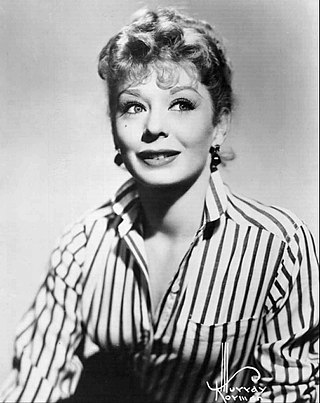
Gwyneth Evelyn "Gwen" Verdon was an American actress and dancer. She won four Tony Awards for her musical comedy performances, and she served as an uncredited choreographer's assistant and specialty dance coach for theater and film. Verdon was a critically acclaimed performer on Broadway in the 1950s, 1960s, and 1970s, having originated many roles in musicals, including Lola in Damn Yankees, the title character in Sweet Charity, and Roxie Hart in Chicago.

Kiss Me, Kate is a musical with music and lyrics by Cole Porter and a book by Bella and Samuel Spewack. The story involves the production of a musical version of William Shakespeare's The Taming of the Shrew and the conflict on and off-stage between Fred Graham, the show's director, producer, and star, and his leading lady, his ex-wife Lilli Vanessi. A secondary romance concerns Lois Lane, the actress playing Bianca, and her gambler boyfriend, Bill, who runs afoul of some gangsters. The original production starred Alfred Drake, Patricia Morison, Lisa Kirk and Harold Lang.
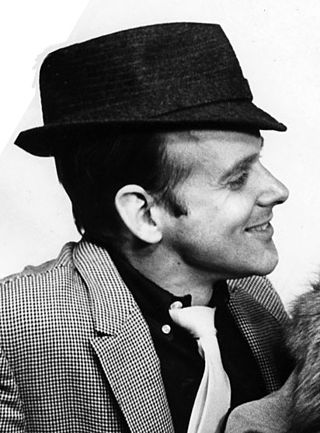
Robert Louis Fosse was an American choreographer, dancer, and film and stage director. Known for his work on stage and screen, he is arguably the most influential figure in the field of jazz dance in the twentieth century. He received numerous accolades including an Academy Award, a BAFTA Award, three Primetime Emmy Awards, nine Tony Awards, and the Palme d'Or.

Chicago is a 1975 American musical with music by John Kander, lyrics by Fred Ebb, and book by Ebb and Bob Fosse. Set in Chicago in the Jazz Age, the musical is based on a 1926 play of the same title by Maurine Dallas Watkins about actual criminals and crimes on which she reported. The story is a satire on corruption in the administration of criminal justice and the concept of the "celebrity criminal".

Sweet Charity is a musical with music by Cy Coleman, lyrics by Dorothy Fields and book by Neil Simon. It was directed and choreographed for Broadway by Bob Fosse starring his wife and muse Gwen Verdon alongside John McMartin. It is based on the screenplay for the 1957 Italian film Nights of Cabiria. However, whereas Federico Fellini's black-and-white film concerns the romantic ups-and-downs of an ever-hopeful prostitute, in the musical the central character is a dancer-for-hire at a Times Square dance hall. The musical premiered on Broadway in 1966, where it was nominated for nine Tony Awards, winning the Tony Award for Best Choreography. The production also ran in the West End as well as having revivals and international productions.
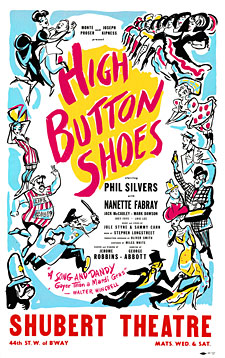
High Button Shoes is a 1947 musical with music by Jule Styne, lyrics by Sammy Cahn and book by George Abbott and Stephen Longstreet. It was based on the semi-autobiographical 1946 novel The Sisters Liked Them Handsome by Stephen Longstreet. The story concerns the comic entanglements of the Longstreet family with two con men in Atlantic City.
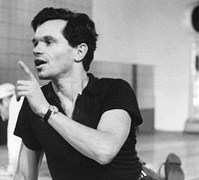
Michael Kidd was an American film and stage choreographer, dancer and actor, whose career spanned five decades, and who staged some of the leading Broadway and film musicals of the 1940s and 1950s. Kidd, strongly influenced by Charlie Chaplin and Léonide Massine, was an innovator in what came to be known as the "integrated musical", in which dance movements are integral to the plot.

Panama Hattie is a 1940 American musical with music and lyrics by Cole Porter and book by Herbert Fields and B. G. DeSylva. The musical is about a nightclub owner, Hattie Maloney, who lives in the Panama Canal Zone and ends up dealing with both romantic and military intrigue. The title is a play on words, referring to the popular Panama hat.

Ann Reinking was an American dancer, actress, choreographer, and singer. She worked predominantly in musical theater, starring in Broadway productions such as Coco (1969), Over Here! (1974), Goodtime Charley (1975), Chicago (1977), Dancin' (1978), and Sweet Charity (1986).

Fosse is a three-act musical revue showcasing the choreography of Bob Fosse. The musical was conceived by Richard Maltby Jr., Chet Walker, and Ann Reinking.
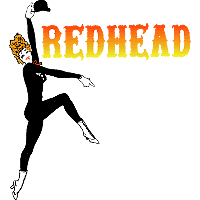
Redhead is a musical with music composed by Albert Hague and lyrics by Dorothy Fields, who with her brother, Herbert, along with Sidney Sheldon and David Shaw wrote the book/libretto. Set in London in the 1880s, around the time of Jack the Ripper, the musical is a murder mystery in the setting of a wax museum.

The Shubert Theatre is a Broadway theater at 225 West 44th Street in the Theater District of Midtown Manhattan in New York City. Opened in 1913, the theater was designed by Henry Beaumont Herts in the Italian Renaissance style and was built for the Shubert brothers. Lee and J. J. Shubert had named the theater in memory of their brother Sam S. Shubert, who died in an accident several years before the theater's opening. It has 1,502 seats across three levels and is operated by The Shubert Organization. The facade and interior are New York City landmarks.

Joan Hume McCracken was an American dancer and actress who became famous for her role as Sylvie in the original 1943 production of Oklahoma! She also was noted for her performances in the Broadway shows Bloomer Girl (1944), Billion Dollar Baby (1945) and Dance Me a Song (1950), and the films Hollywood Canteen (1945) and Good News (1947).

Out of This World is a musical with music and lyrics by Cole Porter, and the book by Dwight Taylor and Reginald Lawrence. The show, an adaptation of Plautus's comedy Amphitryon, first opened on Broadway in 1950.

Can-Can is a 1960 American musical film made by Suffolk-Cummings productions and distributed by 20th Century Fox. It was directed by Walter Lang, produced by Jack Cummings and Saul Chaplin. The screenplay was written by Dorothy Kingsley and Charles Lederer, loosely based on the musical play by Abe Burrows. The music and lyrics were written by Cole Porter for the play, but for the film, some songs were replaced by those from earlier Porter musicals. Art direction was handled by Jack Martin Smith and Lyle R. Wheeler, costume design by Irene Sharaff and dance staging by Hermes Pan. The film was photographed in Todd-AO. Although performing well on initial release, it failed to recoup its production costs from its domestic receipts.
Alive and Kicking is a musical revue with sketches by Ray Golden, I.A.L. Diamond, Henry Morgan, Jerome Chodorov, Joseph Stein, Will Glickman, John Murray, and Michael Stewart; music by Hal Borne, Irma Jurist, Sammy Fain, Hoagy Carmichael, Harold Rome, Sonny Burke, Leo Schumer, and Ray Golden; and lyrics by Paul Francis Webster, Ray Golden, Harold J. Rome, Leonard Gershe, Sid Kuller, and Michael Stewart.

Mexican Hayride is a musical with a book by Herbert Fields and Dorothy Fields and music and lyrics by Cole Porter. The show opened on Broadway in 1944.

You Never Know is a musical with a book by Rowland Leigh, adapted from the original European play By Candlelight, by Siegfried Geyer and Karl Farkas, with music by Cole Porter and Robert Katscher, lyrics by Cole Porter, additional lyrics by Leigh and Edwin Gilbert, directed by Leigh, and songs by others.
The American Dance Machine was a theatrical dance company created by Lee Theodore, which played on Broadway at the Century Theatre, opening Jun 14, 1978 and in total running 199 performances. It was duplicated with a second cast for the American Dance Festival at Duke University in 1978. The show was a "Living Archive" of Broadway theatre dance; great theatre dances saved from oblivion. Films were made of the performances to preserve original Broadway choreography and can be found at the Lincoln Center Library of the Performing Arts in New York City. Broadway legend Gwen Verdon appeared a film version of the show in 1981 for Showtime. Choreographers included: Agnes De Mille, Jack Cole, Joe Layton, Michael Kidd, Ron Field, Bob Fosse, Onna White and Peter Gennaro. Featured dancers and guest artists included Janet Eilber, Carol Estey, Harold Cromer, Liza Gennaro, Patti Mariano, Nancy Chismar, Randy Skinner and Donald Young.
David Hibbard is an American stage performer, primarily known for Broadway musicals and television commercial voiceovers. Since 1999, Hibbard has been a teacher of vocal performance and audition technique at Collaborative Arts Project 21 (CAP21), once affiliated with New York University Tisch School of the Arts and now a part of Molloy College in Rockville Centre, Long Island with studio space at Molloy College Manhattan Center.
















